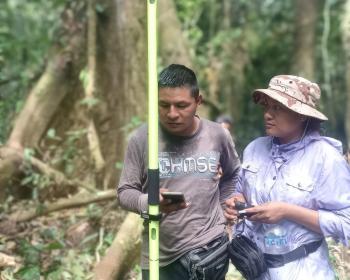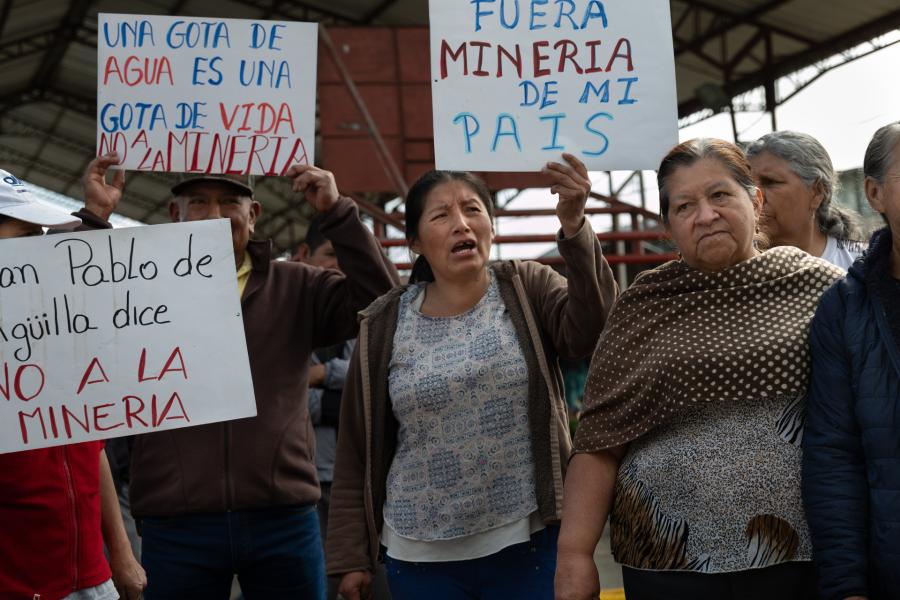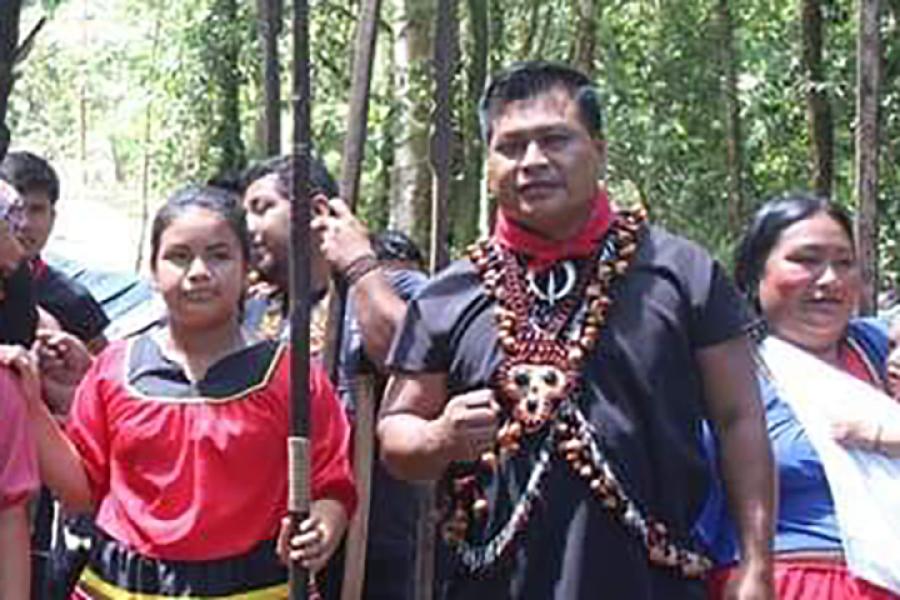In May 2003, Ecuadorians learned to their astonishment of the deaths of 12 Taromenae older men, women, and children who were part of a community that had voluntarily isolated itself from Western civilization. Those responsible for the massacre were a group of Huaorani, Amazonian indigenous people who were once considered to be particularly violent and resistant to contact, who were forced by missionaries, petroleum interests, and the government of Ecuador to give up their traditional way of life more than 50 years ago. The Huaorani are cultural kin to the Taromenae, the Tageris, and other peoples whose response to Western incursion was to withdraw more deeply into their Amazonian jungle territory.
The bloody attack against the Taromenae was carried out by a Huaorani extended family group that supposedly had abandoned revenge as a means of settling disputes, but that still practiced it, on occasion, against other indigenous groups—in this case one that was known to the outside world mostly through local lore rather than contact with Westerners. The massacre brought to light some of the serious problems that face un-contacted indigenous groups in the Intangible Zone and the Yasuní National Park, located in the central-north Amazon region of Ecuador.
Ritualized revenge against a community believed to be responsible for the death of a community member is part of traditional Hauorani culture. In this case, provocation for the attack resulted from the death of Huaorani leader Carlos Ima 10 years before. But traditional impulses that might otherwise have been tempered were manipulated by external interests in logging, oil extraction, tourism, and curiosity about meeting uncontacted peoples in the zone where the murders took place. The Huaorani involved in the massacre, presumably interested in the easy money that comes from lumber, oil, and tourism, reenacted their symbolic conflict with their uncontacted kin (who retain control over their lands) and hunted them down to gain favor with the outside interests. The situation was further complicated by the chronic absence of the Ecuadorian government from the zone where the Huaorani committed the murders. The government delegated responsibility for managing conflicts with and among indigenous groups to the extraction companies whose land and resource interests were best served by the cultural ethnocide of indigenous peoples.
In traditional Huaroani culture, the killing of a member of a Huaroani group must be rectified by the killing of a member of the responsible group. Indeed, it is the responsibility of the attacked group to carry out a revenge killing using spears. Participating in the killing helps sustain group identity, and not participating is socially unacceptable. Because it is a social obligation, revenge killings do not require external authorization of any kind.
A "killing with spears" is not an arbitrary act. It begins with the decision and the preparation for the incursion which can take place only under the right conditions, and requires the involvement of all members of the group. The killing must occur on a night without a moon, and the women and children must hide in the woods as soon as the "fighters" depart. When they return, the assassins must obey certain restrictions including not eating meat, not sleeping under a roof, and not hunting. When the women and children leave their hiding places, they must burn their homes, destroy their gardens, and move to another part of the forest where they must live in a state of alert for approximately one year.
The Huaorani who killed the Taromenane no longer lived in circumstances under which many of these rituals could be carried out, and it was widely reported that the participants returned to their community, Tinguino, and promptly got drunk and roudy. Tinguino is the last Huaorani community along the El Auca Highway, a road built by oil interests to facilitate the extraction of petroleum. It is now heavily used by loggers who are extracting logs from indigenous lands without any form of state supervision or control. Their lives have been profoundly altered as a result of contact. Many have argued that they should have "known better" than to participate in a revenge killing, and that they were aware that doing so would make them liable to be brought to justice under Ecuadorian law. On the other hand, others maintain that the Huaorani still retain a worldview that is founded on their traditional culture and the social obligations that ensue from it, and their cultural practices, including occasional "killing with spears" should not be judged by non-Huaorani norms or processes.
Ecuadorian society responded to the massacre in contradictory and inappropriate ways including a sensationalist advertising campaign, a penal investigation that was quickly buried in the archives of the public prosecutor’s office in Puyo, and threats of capture and territorial incursion by governmental authorities and police. On the other hand, the measures taken by the leaders and elders of several Huaorani communities, which led them to “pardon the attackers,” were considered unacceptable by the national society. The Ecuadorian public found it difficult to understand how pardoning mass murderers would effectively prevent future attacks and confrontations.
This massacre and its lamentable aftermath disappeared from the national consciousness within a matter of months, and once again established the government’s unwillingness to protect indigenous peoples from external economic interests. Now, two years later, the opening of a lumber campsite just two kilometers from a Taromenae house raises again the specter that new incursions into the territory of this vulnerable group of people—who want to maintain their traditional lifestyle—could lead to their annihilation. What most urgently is needed is action by the national and international community to prevent the Taromenae and other uncontacted Amazonian peoples from being rendered extinct.
Gina Chavez Vallejo is an anthropologist with the Facultad Latinoamericana de Ciencias Sociales in Quito, Ecuador, and the convener of an electronic forum on the Huao-Tagaeri Conflict organized by the Red Ecuatoriana de Antropologia Juridica and held in June and July 2003.



